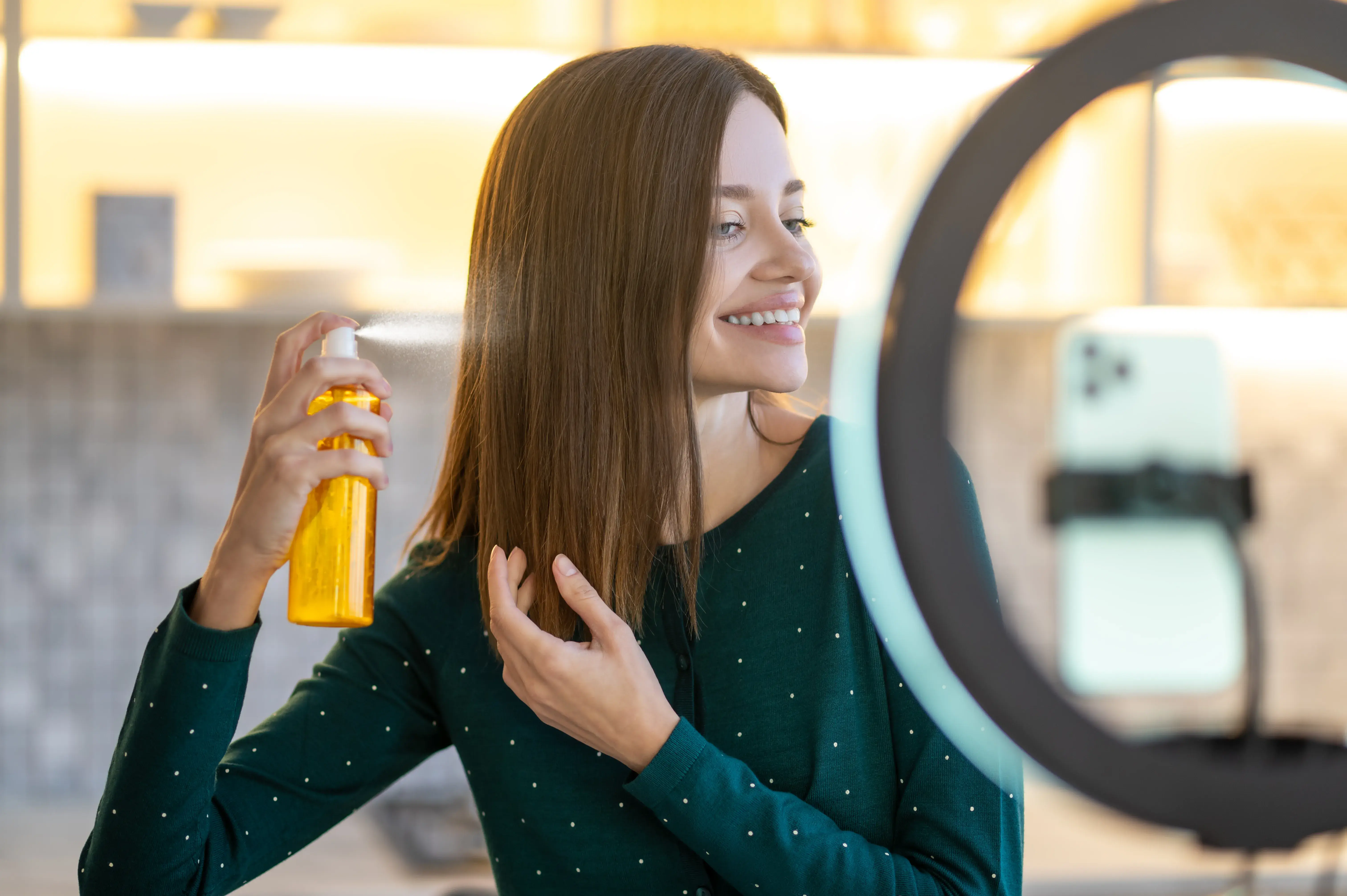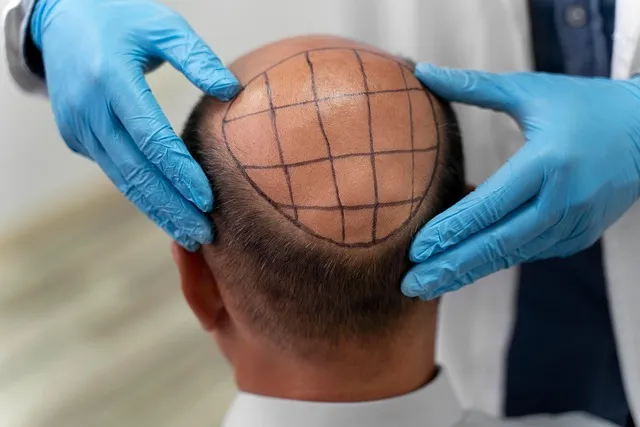You believe you have a good supply of essential hair products at this stage. You wash and condition your hair twice a week, apply a hair mask at least once a week, and finish with a heat-protecting leave-in treatment. Is there anything else to worry about? Hair serums are a must-have commodity in every beauty enthusiast's arsenal. They help your mane in many ways and keep it looking fine. You can't take some serum off the shelf and start using it, as you can for most other beauty necessities. Hair serums, like other necessities, can be used to fix particular issues with your hair. Hair serums, much like facial serums, will target unique skincare issues in your hair. And for people with hair loss, having a hair serum that helps is absolutely crucial.
What is hair serum?

Hair serum is a silicone-based styling product designed to coat the surface of the hair thus hydrating, moisturizing, and smoothening, offering the hair protection against pollutants such as dirt or excess heat, giving the hair a shiny finish. Hair serum is often mistaken for hair oil due to its appearance and consistency. Yet, there is a stark difference between the two products, hair oil is formulated to deliver surface-level protection and condition, whereas serums are used to treat hair at the surface. Hair serum is used to prevent and mitigate hair breakage caused by hair dryness experienced by people with coarse and frizzy hair. It is gaining popularity in the cosmetic industry as demonstrated by a proliferation of diverse variants promising different functionalities depending on the hair type and condition such as reduced hair loss stemming from alopecia, growth stimulation, enhanced hair volume, and density. Hair serums are manufactured using natural ingredients ranging from aqua (distilled water) aloe vera, argan oil, caffeine, and avocado oil to zinc. The manufacturer's choice of ingredients to use hinges on the desired value proposition offered to the users. For instance, to stimulate growth and prevent hair thinning a natural herb known as Kapila longa is utilized in the bulk of hair serums. Capilia longa is an all-natural and plant-based hair growth formula, made completely from the plant Curcuma longa, more known as turmeric.
What should you look for?
Capilia Longa
Video: https://www.youtube.com/watch?v=yKHzf6z4f5c Capilia longa prevents and reverses hair loss in several ways. It is considered a natural version of minoxidil, it thus blocks inhibitors such as invasive hormones ensuring a supply of nutrients and blood circulation to the scalp facilitating growth. It is proven to grow hair more rapidly than artificially manufactured minoxidil by 8 percent. Capilia longa also produces an epigenetic reset of the hair bulb, restarting the activity of the dermal papilla cells. It strengthens hair follicles, stimulates healthier and stronger hair growth, extends the life of the hair fibers, moisturizes the hair, and treats scalp conditions like itchiness, dandruff, and inflammation.
Zinc
Zinc produces similar results due to amino acid and blood flow-promoting agents.
Caffeine
Caffeine is also a pivotal ingredient with stimulating properties that should be looked at when choosing a serum. It targets the roots in hair growth's initial phases, targeting a hormone called Dihydrotestosterone (DHT). DHT is an androgen that prevents hair follicles from getting enough vitamins, proteins, and minerals, causing one to lose their hair faster and earlier. Caffeine also fosters increased blood circulation which ensures that nutrients reach the hair's scalp and roots guaranteeing healthy follicles, and faster and stronger hair growth hence alleviating alopecia.
Silicone
Even though there are a variety of silicone-free variants in the market, silicone is still one of the most integral ingredients of the product. Silicone forms a protective layer around the hair strands when applied. It acts as a barrier against heat and dirt thus locking in moisture in the hair rendering it hydrated and less frizzy. Silicone-free variants use alternative replacements such as hydrogenated ethylhexyl olivate (HEO) which does the same job. HEO is derived from olive oil and contains nutritious phytochemicals that support healthy skin. It softens hair and skin by adding a protective film and reducing oiliness.
Protein
Besides, protein is also an important ingredient to look at when choosing a hair serum. Good examples of natural plant-based proteins that can be found in serum are wheat protein and hydrolyzed quinoa. Hydrolyzed implies that it is broken down with water. It is a natural protein for hair color retention conditioning and protection. Quinoa is considered a complete protein, containing seventeen amino acids, including all eight essential amino acids. The proteins penetrate into the hair shaft for powerful protection. Proteins are essential to achieve healthy hair because they nourish and moisturize hair.
What should you avoid?
Alcohol
Choosing a serum it is important to look out for certain ingredients that should be avoided. Alcohol is corrosive and thus excessive use of alcohol in serums may be detrimental to the health of the hair. It could strip the hair of natural oils, moisture, and hydration. This could cause hair breakage and drying of the scalp culminating in split ends, irritation, itching, flaking, and dandruff.
Paraben
Paraben has in the past been incorporated in many cosmetic products to kill bacteria and as a preservative. But, serums laced with paraben should completely be avoided as research has shaded light on their long-term detrimental impacts on the health of users. Studies suggest it mimics the hormone estrogen, but too much of it leads to breast cancer. So, the best bet to avoid such calamitous effects is to use other alternatives such as lactic acid. Lactic acid can be used as a preservative and also a soothing and relaxing agent.
How to choose the best hair serum?
As already alluded to, one's choice of hair serum should be informed by his/her hair type, density, and texture. For instance, people with coarse, dry, and frizzy hair should use denser hair serums that have more oils in them that will hydrate and infuse moisture in their hair. This prevents the tangling of hair that would culminate in breakage. People with smooth hair should go for a lighter hair serum that will enhance the smoothness and shine of their hair as opposed to a dense hair serum that will make the hair greasy which could create flakes and dandruff.
What's the best way to apply hair serum?
Before applying the serum to your hair, ensure that your hair is clean and free of any pollutants. After all, the whole point of applying hair serum is to buffer your hair against external pollutants. Applying serum on dirty and unwashed hair beats the purpose. Therefore, you need to shampoo your hair and condition it. Carefully towel dries your hair leaving it slightly damp. Section your hair into small sections. Squirt about 2-3 drops of serum on your pamp and slightly rub your amps. Apply the serum systematically on each section using your fingertips, when applying ensure that you first start with the ends before making your way up but not to the roots to avoid making your roots oily and greasy which will lead to build-up and dandruff. Gently brush your hair to remove knots and tangles, and start with the roots first before moving to the rest of the hair. Do not wash out the serum, leave it for at least 6 hours. Rinse hands after use. NB: Must be applied once daily. Leave in for at least 6 hours (i.e. apply after showering or before night). Can sit on the scalp for more than 24 hours. For thin hair use 2-3 drops, for thick hair use a maximum of 6 drops.

Reviewed by







